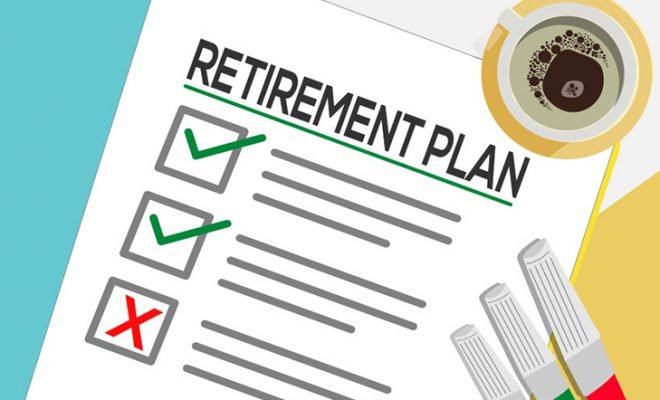Planning for Retirement: What to Consider When Buying a Home for Your Golden Years
Are you planning on buying a new home to spend your retirement years in? Whether you’re already retired, will be soon, or you have years to go, the best time to start planning for a new house is now. There’s a lot to consider when purchasing a home that you expect to spend a big portion of your life in. Let’s break down a few key things you should be thinking about as you get started on your post-career house-hunting journey.
Key Takeaway
When it comes to buying a home to spend your retirement years in, it's important to start planning now. Consider the location, types of recreational activities nearby, access to healthcare facilities, and other important elements that will make the house suitable for your lifestyle. Researching potential homes ahead of time can help you get an idea of what is available in your budget and give you a better chance of settling into a house that meets all of your needs. Investing time now can save you from making costly mistakes or settling for something that won't make you happy later on.
When Should You Buy A Retirement Home?
The best time to buy a retirement home is when you’ve saved enough money to cover the costs of purchasing and maintaining a property. While it can be tempting to move too soon, it’s important to make sure that you have the resources necessary before making such a large commitment. It is also wise to consider the future growth of your finances, as well as any potential changes in retirement savings plans or benefits.
What Are The Benefits Of Buying A Retirement Home?
Buying a retirement home has many benefits, from providing stability and security to giving you the opportunity to make long-term investments. You’ll be able to design your living space according to your needs, which can eliminate the need for costly upgrades later on. In addition, owning a property will also give you more control over how much you pay in taxes and associated costs.
Buying A House Before Retirement
Buying a house before retirement can be an excellent decision for many reasons. First, it allows you to lock in a lower interest rate. This could help you save money and make monthly payments more affordable by reducing the amount of interest you have to pay on your mortgage loan. Second, it gives you the opportunity to buy a home that fits your needs and lifestyle. You’ll have time to research neighborhoods, school district ratings, and other factors before you make a purchase. Finally, having a home already in place can provide peace of mind if any unexpected expenses arise during retirement.
Buying A House After Retirement
Buying a house after retirement can also be a great decision for many retirees. By purchasing property after you have retired, you will already have the financial stability needed to make this large investment. Furthermore, some retirees may receive additional benefits from their state or federal governments for owning a home in their post-retirement years. These could include deductions on income taxes, additional benefits for seniors, or even lower mortgage rates.
What To Consider When Buying A Retirement Home
When purchasing a home for retirement, there are several important factors to consider. Location is one of the most important aspects, as it can have a significant impact on your lifestyle and quality of life. Here are a few factors to consider when looking at retirement homes:
Finances- The most important thing to consider when buying a home to retire in is the impact that this house will have on your finances. If you are taking out a mortgage to pay for this home, when will you be able to pay it off by? Will you need to alter your retirement budget to accommodate for mortgage payments and other home expenses? Consider how big of a down payment you’ll need to make, too, and how much you’ll need to have set aside in savings for that as well as closing costs.
You should also think about how much home you can realistically afford. Your income will likely look a bit different after you’re done working – so keep in mind you may not have the monthly cash flow that you may have enjoyed before. Make sure your budget for housing expenses is accurate and based on your future income, not your current one. If you’re moving to a new, warmer state, you will also want to think about the impact that could have on the cost of your property taxes.
Location- When you think of the dream house that you want to spend the rest of your life in, you might imagine a mansion on the beach – but that may not be very realistic, even if you could financially swing the purchase. If you’ve lived in a northern state your entire life, moving to a place that experiences hurricanes might be a bit of a shock that you won’t necessarily want to have to deal with.
Beyond weather, think about practical problems you could run into.
You should also consider your future home’s proximity to any family or friends that you keep in touch with. Without the social network that working provides, many homeowners find themselves feeling isolated or lonely, especially if they move out of state to retire. If you want to stay close to loved ones, that should be a factor you take into account when moving.
House Type- When it comes to choosing a house type for retirement, there are several different options. Depending on individual lifestyle needs and preferences, a retiree could choose from a single-family home, condominium, townhome or even an apartment. Single-family homes offer more privacy and space than other types of housing and are usually the most common choice for retirees. Condos and townhomes, on the other hand, can be a great choice for those who want to take advantage of amenities such as community pools or gyms while not having to worry about lawn care or home maintenance. Apartment-style living might also be an option if you’re looking for a simpler lifestyle and lower cost of living.
Nearby Amenities- When considering a retirement home, it is important to consider the amenities nearby. Retirement can be an exciting period of life, but it also comes with its own set of challenges. Having quality amenities nearby can make life easier and more enjoyable for retirees.
A key factor to consider is the availability of healthcare services. In many cases, a retiree’s health needs will be different from what they were during their working years, so it is important to research the availability of quality doctors and hospitals nearby. If you are relocating to a new area, you should also consider the services offered by local government offices or community organizations that can help make the transition easier.
Other amenities that can make life more enjoyable include access to shopping, dining and recreation centers. Research the availability of these in the area to ensure you will have activities and establishments to enjoy nearby.
Long-Term Housing Costs- As retirement approaches, it is important for individuals to consider the long-term costs associated with their housing decisions. On top of the down payment and closing costs, homeownership comes with a variety of ongoing expenses. Property taxes, homeowners insurance, and maintenance fees will all affect your budget each month - in addition to your mortgage payments.
Future Plans- When making plans for your retirement, it's important to consider what your future goals are. If you want to travel, make sure to factor in the cost of transportation and the increased expense of living abroad. You should also consider if you plan to work part-time or volunteer in your new home. These activities can help provide income and a sense of purpose in retirement.
Mistakes To Avoid When Buying A House In Retirement
When buying a home for retirement, there are several mistakes that should be avoided. Firstly, retirees should not assume that their current budget will be the same in retirement. Many retirees underestimate the cost of living in retirement and do not factor in additional costs such as property taxes, homeowners insurance, and maintenance fees, which can add up over time.
Retirees should also avoid buying a house that is too big or too small for their needs. Be sure to consider the size of your current household and any potential changes in the future such as family members moving in or out, before making a purchase decision.
Finally, avoid rushing into a home purchase without thoroughly researching all the options. Be sure to consider all your housing needs and preferences, as well as nearby amenities and long-term costs before deciding on a house type.
Are You Ready To Purchase Your Retirement Home?
The bottom line is that investing in a retirement home is an important decision that should be done with careful consideration and planning. Make sure to factor in all the aspects mentioned above before committing to an investment that could impact the rest of your life. With the right planning and preparation, you can make sure your golden years are spent in a safe and comfortable home. Good luck!


